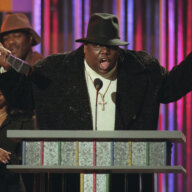A judge today denied a petition for a preliminary injunction that would have halted Pennsylvania’s controversial voter ID law, in which those who want to cast a ballot must first show valid photo identification.
“I just can’t believe it,” 93-year-old Viviette Applewhite of Germantown, one of the plaintiffs named in the petition, said in a statement responding to the ruling. “Too many people have fought for
the right to vote to have it taken away like this. All I want is to be
able to vote this November like I always have. This law is just
ridiculous.”
The petition was brought to court by a coalition of civil rights groups, including the League of Women Voters of Pennsylvania, the NAACP, the ACLU and the Homeless Advocacy Project, who argued the law, Act 18, would disproportionately burden low-income citizens and the elderly and posed an unconstitutional, partisan-driven attempt at restricting the rights of those demographics – the majority of which are Democrats – to vote.
Commonwealth Court Judge Robert Simpson found that the inconvenience of gathering the required documents and trekking to PennDOT is not substantial for “the vast supermajority of registered voters,” nor is it restrictive enough to pose a constitutional violation. He said that the state’s rationale – to ensure public confidence in elections’ security and integrity and reduce the risk of voter fraud – were “relevant, neutral and non-discriminatory justifications.”
“Thus, the photo ID requirement of Act 18 is a reasonable, non-discriminatory, non-severe burden when viewed in the broader context of the widespread use of photo ID in daily life,” Simpson wrote in his 70-page opinion. “The Commonwealth’s asserted interest in protecting public confidence in elections is a relevant and legitimate state interest sufficiently weighty to justify the burden.”
As far as allegations of partisan motivation in passing the act, the judge acknowledged that House Majority Leader Michael Turzai’s infamous comments that the law would allow Republican presidential candidate Mitt Romney to win the state of Pennsylvania were “disturbing” and “tendentious,” but noted they weren’t made on the house floor. He went on to write, “Factually, I declined to infer that other members of the General Assembly shared the boastful views of Representative Turzai without proof that other members were present at the time the statements were made.”
The judge concluded that his opinion was based strictly on a factual analysis of law. “Petitioners;’ counsel did an excellent job of ‘putting a face’ to those burdened by the voter ID requirement,” he wrote. “At the end of the day, however, I do not have the luxury of deciding this issue based on my sympathy for the witnesses or my esteem for counsel.”
Turzai quickly issued a statement applauding the ruling. “The integrity of each and every valid vote was upheld today,” he said. “As the court said, the requirements of Act 18 will be implemented in a non-partisan, even-handed manner by Commonwealth agencies, and qualified voters will have their votes counted. … It is unfortunate, but there has been a history of voter fraud in Pennsylvania. The elections in the Commonwealth will be on a more level playing field thanks to voter ID and other recent election reforms.”
Gov. Tom Corbett followed suit. “Now that the court has upheld the constitutionality of the law, we can continue to focus our attention on ensuring that every Pennsylvania citizen who wants to vote has the identification necessary to make sure their vote counts,’’ he said.
An appeal is expected to be filed shortly and opponents are already firing back. “Judge Simpson’s ruling is not the end of the voter ID battle in Pennsylvania,” said Zack Stalberg, President and CEO of the Committee of Seventy. “Voters don’t know what or when the Supreme Court will decide. Several hundred thousand voters face a genuine risk of losing the chance to vote.”
“I’m extremely disappointed in today’s ruling, which will deny thousands
of eligible Pennsylvania voters their constitutional right to vote,” House Democratic Leader Frank Dermody said in a statement. “Today’s ruling is a travesty not just for those Pennsylvanians whose right to vote will be stripped away by this law, but for all Pennsylvanians and all American citizens. … I sincerely hope the Supreme Court will right this terrible wrong and will overturn this decision in time for the November elections. The commonwealth’s highest court should see what the rest of the nation so plainly does – that this law is a scam.”
President of Philadelphia’s City Council Darrell Clarke said that he, too, is disappointed with the decision. “The state has yet to demonstrate the so-called phenomenon of voter fraud even exists in Pennsylvania,” he said in a statement. “Data showing the law disproportionately burdens older, poorer, and minority voters – in addition to the starkly partisan support behind this law – are a much clearer demonstration of what this law is actually designed to accomplish. Even if the appeals process were to end with relief in the state Supreme Court, it is obvious onerous photo ID requirements are the new frontier in voter suppression nationwide.
“When I was elected to Philadelphia City Council more than a decade ago, I could not possibly have envisioned my duties would include ensuring U.S. citizens are not turned away from voting booths. Rather than complain about this new challenge, I embrace it. This office is committed to ensuring all Philadelphia voters who are eligible to vote are permitted to exercise that right on November 6.”
City Council Majority Leader Councilman Curtis Jones, Jr. shared similar sentiments. “The photo ID law is nothing more than today’s version of poll taxes and grandfather clauses,” he said in a statement. “Data has proven there is no such fraud in voting in the United States or subsequently in Pennsylvania. This law’s only objective is to minimize the voices of the elderly, poor, disadvantaged and minorities throughout our Commonwealth. There is no reason to be coy; this is just another sense of ‘Romney-hood’ a way to take from the poor to advantage the rich.”
Obama for America’s Pennsylvania Press Secretary Jennifer Austin also weighed in. “Regardless of today’s decision, we remain committed to working with supporters and volunteers across the state to register and educate Pennsylvanians about the Voter ID law,” she wrote in an email. “We want to ensure all eligible voters have the information they need to get to the polls in November and exercise their right to vote. … Now more than ever it is important that the Commonwealth follow through on its plan to make available free IDs to any voter who may need them.”
The ruling has galvanized many voter advocacy groups to ramp up outreach and education efforts. “The bottom
line is that we have 85 days left to make sure that every eligible voter
is prepared to vote in November,” said Amanda Bergson-Shilcock of the Welcoming Center for New Pennsylvanians in a statement issued by the Pennsylvania Voter ID Coalition. “We want every eligible Pennsylvanian
to be able to cast a vote, and that means each person must have a valid
photo ID. Every person in Pennsylvania who is eligible to vote
in November should take three important steps: Register to vote, confirm
that you have valid photo ID, and then go to the polls and vote.”
“Until there is a final ruling, we can not stop urging
and helping voters to get the photo ID they will need to vote,” echoedJohn
Jordan of the Pennsylvania NAACP. “The vote
is just too important to stop now.”
The Lawyers Committee for Civil Rights in Washington, D.C. has launched an Election Protection Android and iPhone app allowing voters to look up their registration status and polling place, familiarize themselves with the type of voting machine they will use, report problems and submit voter-related inquiries and access a frequently asked questions guide for their state so they know the rules governing identification and absentee ballots. That can be downloaded here.
Advocacy group SeniorLAW center will be holding free clinics to assist voters in obtaining acceptable voter ID, though Executive Director Karen Buck said in a statement that the process takes time. “It takes several weeks to assemble the required paperwork, and even more time to actually get the photo ID from a PennDOT Driver’s License Center where voters have run into problems,” she said. “It will be an unpleasant surprise to learn that you can’t use the voting machines to vote for president because you don’t have the right type of ID.”
The Committee of Seventy also has a hotline – 1-866-OUR-VOTE (687-8683) – and webpage dedicated to educating voters about the ID requirement and helping them obtain the necessary documents.




























